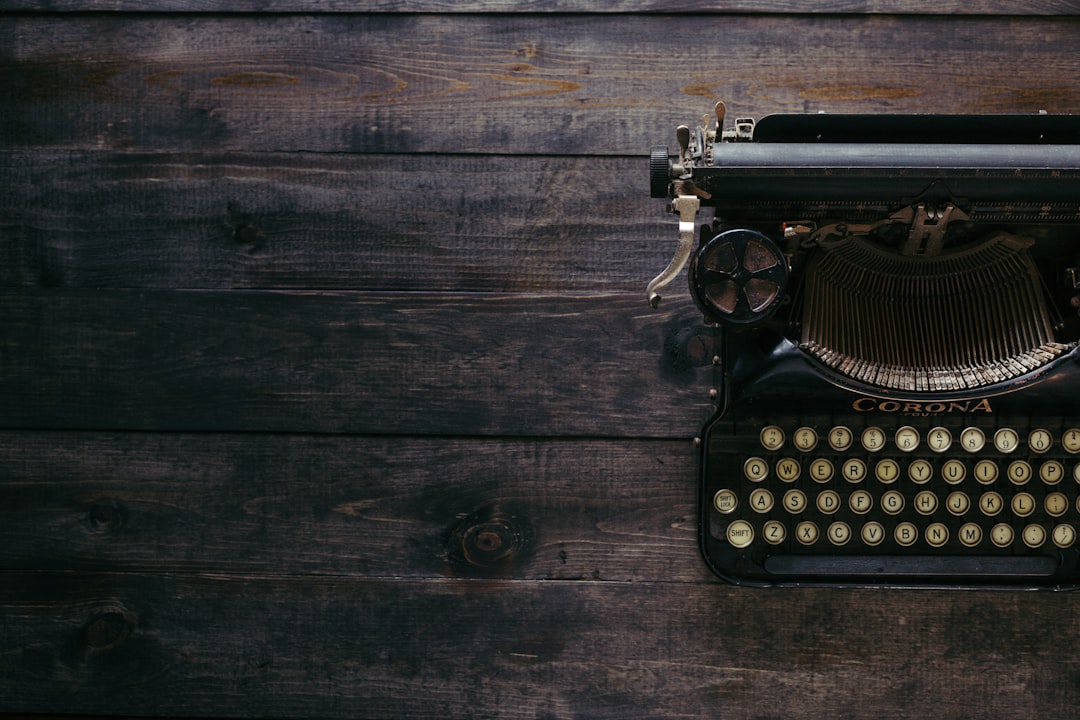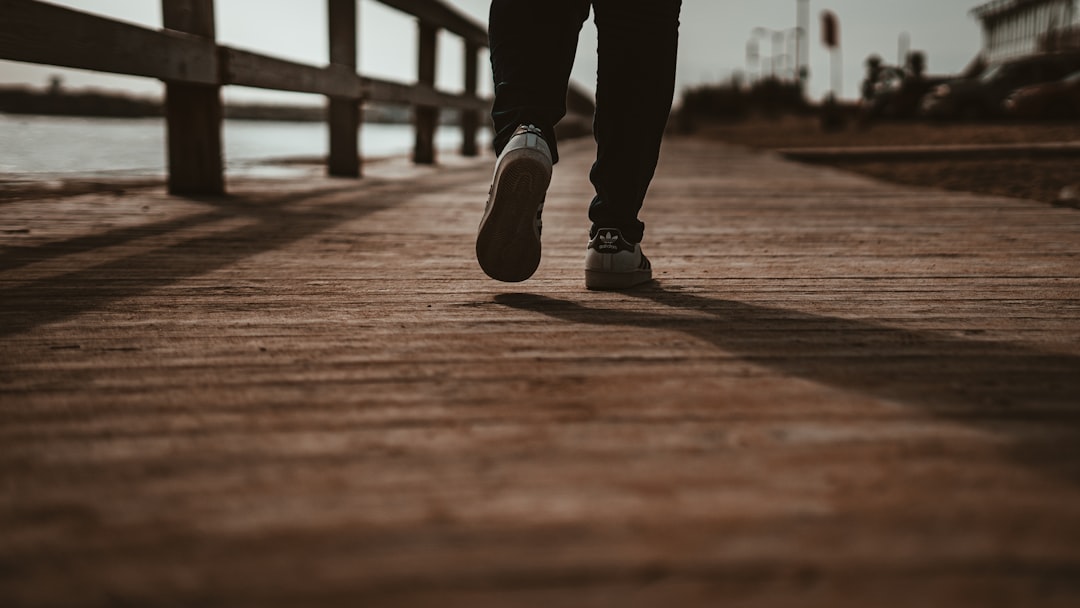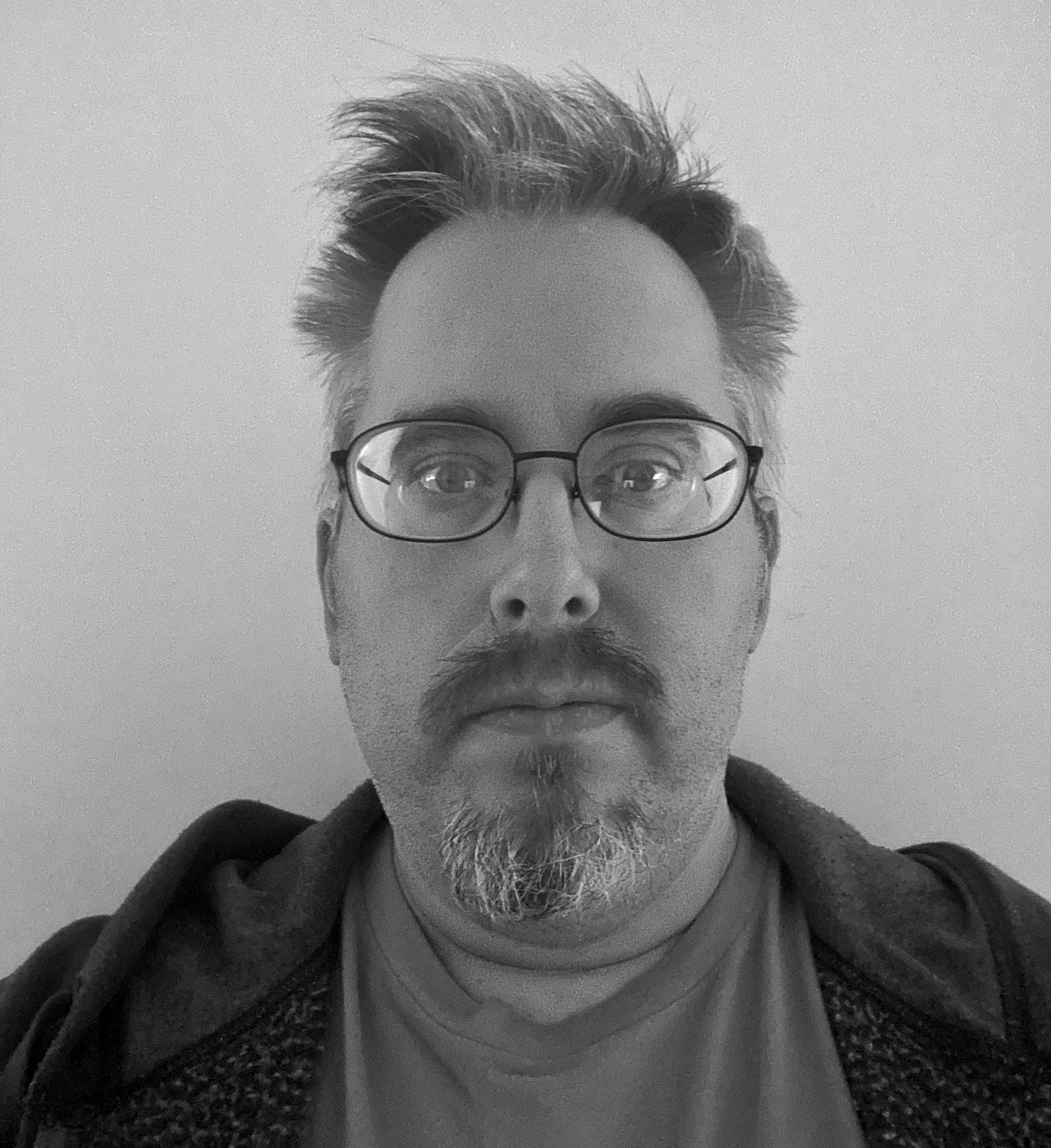I Am Anxious... John Adamus
The writing coach, freelance editor, and game designer talks living with cerebral palsy, loneliness, and how anxiety "dominates and colors everything."
“I'm known for helping writers start, improve, and finish their work, especially when they thought it was impossible or if they're tired of getting stuck for whatever reason.”
His Patreon, Watch Movies, Write Better is where every week he breaks down a different movie into its narrative parts and turn it into tools to help writers tell their own stories.
“It's a fusion of my three favorite things: watching movies, talking about stories, and not getting off the couch to do either of those things.”
You can find him on Twitter, YouTube, Substack, and on his website.
How long have you been an anxious person?
I'm 44. I've been anxious 38 years.
What is your earliest memory of being anxious?
I can remember being 6 and coming out of a therapist's office — I was born with cerebral palsy and spent the first 10 or so years of my life fighting my body to move like other people's bodies — and I remember the doctor telling my mom "He's not going to be like the other kids. He'd probably be better off with crutches or some surgery to give him some quality of life." And in that moment the idea that I was going to be noticeably different from other kids grafted itself to the core of my being and from then on I only saw how there was a gap between me and everyone else.
I couldn't tie my shoes until I was in the sixth grade. I never learned how to ride a bike. I would fall down if I ran more than about 20 yards. I couldn't throw or catch a football until middle school. My hands would curl and spasm until my mid-teens. I still walk with a slight limp that's noticeable when I'm tired or my legs are sore. I am acutely aware of how I'm not like everyone else and how those differences magnify and amplify in myriad ways through all different kinds of interactions and actions.
This of course was amplified by a disappointed narcissistic father who made sure I knew how much I was letting him down every time I wasn't "just like every other kid" and how hard he had to sacrifice or make accommodations for me as though I was some tremendous burden put on the Earth solely to disappoint him and make his life less than what he wanted it to be.
My whole life has been a protracted siege against anxiety that I'm not good enough.

Have you ever experienced a panic attack?
This week? Yes. Not today, thankfully. But my panic attacks range in intensity from small storms measured in minutes to fully paralyzing disassociating that last hours. They're something I am less ashamed of now, but I feel like they're one of my worst and unacceptable qualities.
What are some of your anxiety triggers? What makes you most anxious?
I'm particularly sensitive to rejection and the potential rejection. Even now as I'm writing this, the anxiety is bubbling up like warm syrup telling me my answers aren't good enough or that no one will care because I'm unimportant and doing something wrong and who gives a shit about what a writing coach no one has ever heard of thinks about his stupid brain.
I don't like loud noises, surprises (like jump scares, but also anything unknown that I can't prepare for) and apparently I'm newly sensitive to crowds, but that might be pandemic-adjacent more than anything else.
How do you feel physically and emotionally when you’re anxious?
Physically someone unplugs my brain from my body and I lose all sense of temperature, timing, air quality and hydration. I want to scream but the air is getting crushed out of me. I want to cry but someone's jammed a barrier between me and my feelings. Nothing feels safe or valid or trustworthy and it's really best that I just sit down and not do anything because it will fail and then I'll be at fault and I'll just make everything worse.
It's an escalating spiral that leaves me exhausted, a mental and emotional marathon across unknown terrain in the dark during a hurricane.
What do you do when you feel anxious? How do you take care of yourself in those situations? Do you have any anxiety management tips or tricks?
My default reaction is to shut down. Nothing happens. No work. No relaxation. All projects and thoughts towards what to do collapse and disappear, no matter how good or excited or interested I was in them, I just sit and stay locked in the grip of something as I get the displeasure of watching everything and everyone else advance past me.
So my management style is to stay two to fifteen steps ahead of that. I've learned the hard way to work in bursts of hours, and punctuate those bursts with something positive or pleasurable or relaxing. This is why I'm up at 5am and working until 8 or 9, then doing very little for an hour before getting back into something at 10 or 11. There are times where my ability to control my time and my effort are the only things keeping me alive.
I used to self-medicate liberally with a lot of hard drugs, but I can't recommend that to other people. Daily medication helps, but it's a tool rather than a whole solution the way that heroin was (and even that wasn't a solution, that was me avoiding everything).
I sleep at least 7 hours a night. I eat well, two to three meals a day when I can afford it, and I drink an absurd amount of water. Daily exercise at least 45 minutes helps keep me feeling like I'm in charge of myself and my brain.

How do you feel your anxiety affects your family, friends, and overall social life?
Anxiety dominates and colors everything. It put my family on eggshells to deal with me, making them careful to not upset me so I can't say I've ever had a true interaction with them where there was any kind of openness or equality between us. It kept me from forming connections with family members I now sorely miss and it keeps me from building more effective relationships going forward.
Friend-wise I'm I think a mixed bag. I am deeply loyal and while I consider myself kind, I don't know if I'm nice. Or vice versa. My anxiety keeps me from taking too many risks with people, since telling them how I feel in a sincere way where I don't deflect with humor or something work-related is a chance for utter rejection that I don't want to contend with. It makes it hard, I think, to be my friend. I feel like most people do it at a distance, which I've always told myself is what I've deserved since I'm not ever going to be like most kids.
It's lonely, and I both hate and enjoy being by myself. I want that to be different. I want to swarmed by friends and loved ones, but at the same time, I like that I can sit by myself and do what I like without feeling like I'm letting someone down.
When you're not feeling anxious (simply in your day-to-day life), what do you do for self care?
For a very long time I thought self-care was just a shorthand for "put lotion on" so I got a variety of lotions and moisturized until it became a daily habit. I'm also the sort of depressive obsessive compulsive who will listen to music over and over until it carves itself into my brainfolds and I can associate certain seconds of a song to whatever I did at the time. I didn't know this was me soothing myself. I thought everyone just listened to the same 30 songs on a loop every day, all week, all the time.
Recently I've started stretching because one day I woke up and was in my 40s and my hamstrings became steel cables and my back started to hurt if I sneezed hard. I am not at all good at it, but I am nearly able to touch my toes, which is something I've never done in my life.
And can I be blunt and say showering? There's something deeply restorative and revelatory in washing yourself and feeling that mix of soap and steam and scent draw over you until everything that clung to you — every stink, every mite, every bit — disappears down the drain in a swirl and a gurgle.

How do you feel about the portrayal of mental health and anxiety in Pop Culture (books, movies, music, etc)? Do you feel it's accurate?
I don't think it's accurate. I think there are times it's close to accurate — I remember a scene in The Newsroom's first season where someone is having a panic attack and they're having trouble breathing and they're crying and everything feels out of control for them — but there are times where something like obsessive compulsive disorder comes across like a crime-solving solution factory or a perk of being a great lawyer when it's really so often you trying to manage some tics and not let an intrusive thought blow your whole day off track.
I think that imbalance is perpetuated by convenience and commercialism — it's a great storytelling tool if mental health is portrayed or lensed one way even if it's inaccurate, and it's not a big scary sell to an audience if things come across watered down or fantastic when the reality can be scary or depressing or mundane.
What worries me is the growing schism between advocacy, portrayal, and the needs of representation. We need to do a better job reflecting ourselves in our art, we need to be more honest with ourselves and each other about how things are, and the people who need help and and care need that help and care and need not to be ignored. It's important that we see ourselves and others see themselves in what we produce but we need to be careful not to let what is a spectrum of spectrums get represented by just one mental health Lorax.
My depression, my OCD, my anxiety are just as valid as yours even if very little (if any) of it matches between us or the millions of other people with their own experiences.
What are some of your favorite examples of Pop Culture that gets anxiety and mental health right?
In music, I've recently found that two albums by NF, 2017's Perception and the more recent 2023's Hope are a good explanation and voice to many feelings around anxiety and mental health.
Not to be too big a dork but I still think Hamlet's soliloquy in the third act is a great view of the existential question we seek to answer when we're tired of bearing the weight of mental health challenges, and it's something I wish more people thought about — not the Shakespeare of it, but the idea that mental health isn't something you can slip in and out of with ease. It's not a hoodie, but it's something with weight and substance that we have to contend with and some of us want other people to hear our soliloquy in all the ways we put it out there.
I'm sorry I don't have more examples of media getting it right. I tend to not go looking for media that directly gets into the stuff I sit with every day. There's enough on my plate and I would rather find relief and peace than anything else once the work is done on a given day. I'm not sure if that makes me a bad creative, but I don't want to rattle off a list of things I don't totally believe in.
What is the best advice you've ever received?
Just like life, writing is the act of making decisions. You decide what goes on the page and what that conjures for the reader the same way you decide how you're going to get through the next five minutes where you know that work suuuuuuucks on toast. Your decisions are going to seem at times inconsequential and at other times monumental but they're always your decisions and you can use them to slalom and crawl and kick and scream and race towards whatever your goal(s) might be.
It's as much a decision to keep going as it is to quit, and both are equally hard. There's no shame in your decisions, and when you feel like you're not sure what's best or how to even make a decision, that's the moment you ask for help. You never have to do anything alone and in those moments where you decide that no one's got your back, there's always someone who does (it's me, I'm a guy on the Internet who always has your back).
Is there anything else you would like to add?
This was a lot harder than I thought. I'm glad I did it. I'm proud of myself for doing it (too often I will say that I should do a thing and then convince myself that I'm too inconsequential to be worth someone's time), and I hope my answers were good. [Editor’s Note: I assure you, they’re great answers.]
Fundamentally, there's this strange balance between courage/confidence and doubt. I know I'm really, really good at what I do and really good at being able to explain hard-to-explain things in a way that can get people moving and doing and succeeding in ways they didn't think they could, but there's also this level of "yeah but I'm just a guy who sometimes wonders if he's going to mess up making toast" that's been such a source of paralysis and anger and frustration that I worry it's keeping me from the sort of big ticket every-coach-allegedly-makes-10k-a-month space the Internet says I should be in.
I see those people and although I don't know how legit that is, I think about how they don't seem to speak to the scared or the anxious or the also-stuck creatives who want to be in some other place than where they are. So maybe that's who I am. I'm for them. I think about that a lot.
Thanks for giving me plenty to think about today. I'm grateful.
Editor’s Note: This interview was edited slightly for length and clarity.
Thank you so much to John for giving me so much to think about today! Your honesty and openness is so appreciated and will help so many folks experiencing similar feelings. Thanks again, John!
If you are interested in being a part of the newsletter in the coming weeks and taking the I Am Anxious… questionnaire, please email me (scott.neumyer@gmail.com) and I’ll get you on the list. I’m actively seeking more and more folks to feature in the newsletter so please reach out. I’d love to have you!
Be well and keep talking.
DISCLAIMER: I am, by no means, a medical profession. If you need help, please seek qualified medical attention. This newsletter, while informative and fun, is no substitute for the real thing.







What a pleasure this was. Thank you so much for the opportunity.